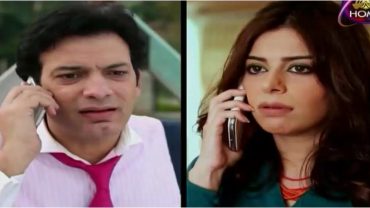
And are our plays only about this kind of love now? "Well, okay, love is important. This time, Hopscotch focused on the concept of love, the kind of superficial love being shown in our plays. In fact, it opposed the 'Me Too' movement. In their earlier meeting, Hopscotch met to unpack the serial Dunk, which showed a bad woman in all its episodes to punish her right in the end. Yet, in real life, there are other women who are fighters, who struggle and emerge victorious," she pointed out. If not that then they are meek and helpless.

They are wicked, they are plotters and they all are in love with their cousins. But in our plays women are depicted as very unreal. "The hopping, skipping, turning, bending, jumping while trying to maintain balance is also like a reflection of a woman's life, and the steps that she takes in life. They are making viewers feel like they were playing hopscotch over what is laid out before them in the name of content. Speaking about Hopscotch, the director of Uks, Tasneem Ahmar, said it is a platform created by Uks to discuss TV plays and the messages coming out of them. Whether love stories are simply a popular theme for Pakistani TV dramas or are they an opioid and a ploy aimed at distracting viewers from real life issues and why falling in love is surmised as a central focus of our lives to the exclusion of every kind of constructive thought and action relating to the development of a human being.



A group of rights activists, writers, researchers, educationists, journalists and politicians met online recently under the umbrella of Hopscotch, an initiative of the Uks Research, Resource and Publication Centre on Women and Media that examines drama content, to ponder over what is happening in Pakistani television dramas and whether there is a world beyond romance and love stories in the alternate universe of producers and production houses.


 0 kommentar(er)
0 kommentar(er)
